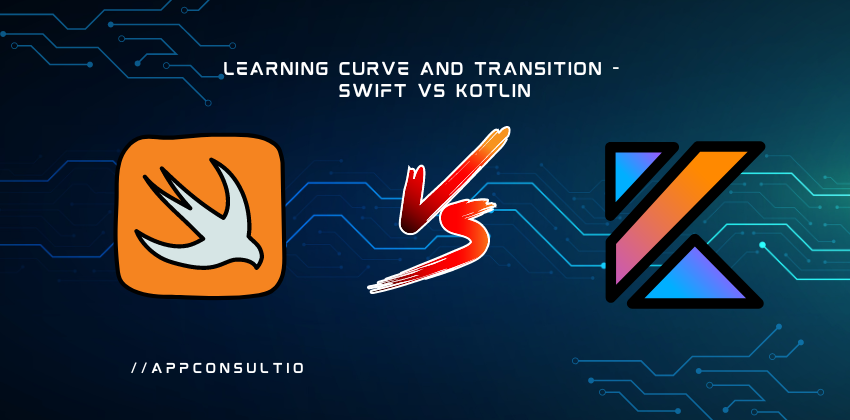
In the world of mobile app development, the programming language you choose can make a big difference in your project's success. Let's explore the showdown between Swift and Kotlin – two languages that have changed how developers create apps for iOS and Android.
Swift, developed by Apple, is known for its elegance, safety features, and seamless integration with iOS devices. Meanwhile, Kotlin, backed by Google, offers concise code, boosts productivity, and helps Java developers transition smoothly.
In this blog post, we're diving into a comparison of Swift and Kotlin. We'll talk about what they're good at, where they have limitations, and what makes each unique. Whether you're an iOS pro wondering about Kotlin or an Android fan interested in Swift, come along as we break down these programming languages. By the end, you'll have a better idea of which one to use for your amazing mobile apps.
Kotlin vs Swift which one is easy?
Learning some programming languages is easier than others. Swift and Kotlin are two beginner-friendly languages that are not too hard to learn.
If you already know languages like Java or Scala, you'll find Kotlin easy to understand.
Kotlin works on both Windows and Mac computers, which is nice. But Swift is mainly for making apps on Apple devices like iPhones and Macs, and you need a Mac to use it.
The good news is that there are lots of helpful resources available to learn both Kotlin and Swift.
People who use Kotlin and Swift are friendly and active online. If you're stuck on something, they're there to help you.
Features and Application –
Kotlin is a modern programming language. It's really good for making apps for Android phones and also for server-side programs.
In 2017, Google said that Kotlin is the best choice for people who make apps for Android.
One cool thing about Kotlin is that it can work well with other languages like Java. This means you can use Java stuff in Kotlin and the other way around.
Big companies like Google, Amazon, Netflix, and more use Kotlin for their important projects.
Now, about Swift. Swift is perfect for making apps for Apple devices like iPhones and Macs. It has great features that help you make apps quickly and they work super fast.
Swift also takes care of some tricky stuff for you, like managing memory. This helps you avoid mistakes when writing code.
If you already know Objective-C, another programming language, Swift will be familiar and easy to use. You can even mix Swift with Objective-C in the same project.
Lots of apps for Apple things, like iPhones and Macs, are built using Swift.
Should we learn Swift or Kotlin –
When you're thinking about which programming language to learn, think about what you want to create and what you're comfortable with.
If you're interested in making things like Android apps, server programs, websites, and apps that work on different devices, then go for Kotlin.
But if you want to make apps just for Apple devices like iPhones, Macs, and more, then Swift is the one to pick.
Key Features of Swift -
Key Features of Kotlin -
Conclusion -
Ultimately, the choice between Swift and Kotlin depends on your project goals and existing expertise. If you're targeting the Apple ecosystem and want to create apps for iOS and macOS devices, Swift's elegant syntax, memory management, and seamless integration make it a compelling choice. On the other hand, if you're aiming for Android app development with a potential for multi-platform projects, Kotlin's concise syntax, strong community support, and versatile applications make it an attractive option.